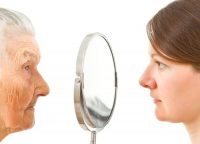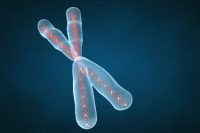
5 Science-Backed Ways Exercise Slows Aging
Exercise does more than just sculpt your body and help with weight control. Research shows it has anti-aging benefits. Read on and discover five ways being physically active slows the aging process.
telomeres

Exercise does more than just sculpt your body and help with weight control. Research shows it has anti-aging benefits. Read on and discover five ways being physically active slows the aging process.

How you age is influenced by your lifestyle and what you eat. Are you making these dietary mistakes that accelerate the aging process?

Aging starts inside your cells, long before it’s manifest on the surface. You can’t completely stop the aging process but there’s evidence that exercise may slow cellular aging. Find out how.

Aging – it’s something we don’t like to think about, but it happens. We often hear about the importance lifestyle plays in health but can it slow down the aging process? How much control do we really have over how fast we age?

Whether we look it or not, cells age. Still, you do have some control over how quickly the cells inside your body age. A new study shows a simple lifestyle change, sitting less, could help slow down the cellular aging process. Find out how exercise, even unstructured exercise you do throughout the day, keeps cells young.

Most people would love to find a way to slow down the aging process. As research shows, you may not have to look very far. Exercise offers a number of anti-aging benefits and may even protect your cells against aging. Find out more.

You need protein in your diet and there are a variety of ways to get it. There are some compelling reasons to get at least a portion of your protein from fatty fish. According to a new study, it could help to prolong your life.

Exercise helps to reduce the risk of diseases such as heart disease, high blood pressure, cancer and diabetes. But it may directly affect the slow down the aging process by altering a cell’s DNA. Find out how exercise affects aging at the cellular level.

How long you live may be in your genes – and your telomeres. Telomeres are a portion of DNA at the end of chromosomes. Find out more.